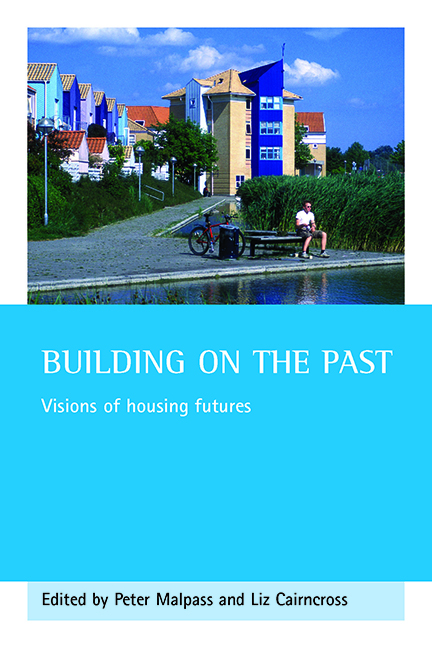Book contents
- Frontmatter
- Dedication
- Contents
- List of tables, figures and photographs
- Foreword
- Acknowledgements
- List of contributors
- one Introduction
- two Moving with the times: changing frameworks for housing research and policy
- three A new vision for UK housing?
- four Housing demand, supply and the geography of inequality
- five Understanding the drivers of housing market change in Britain’s postindustrial cities
- six Affordability comes of age
- seven Mob mentality: the threat to community sustainability from the search for safety
- eight Housing and the ageing population
- nine Tenant futures: the future of tenants in social housing
- ten Democracy and development
- eleven Conclusion
- Index
- Also available from The Policy Press
nine - Tenant futures: the future of tenants in social housing
Published online by Cambridge University Press: 15 January 2022
- Frontmatter
- Dedication
- Contents
- List of tables, figures and photographs
- Foreword
- Acknowledgements
- List of contributors
- one Introduction
- two Moving with the times: changing frameworks for housing research and policy
- three A new vision for UK housing?
- four Housing demand, supply and the geography of inequality
- five Understanding the drivers of housing market change in Britain’s postindustrial cities
- six Affordability comes of age
- seven Mob mentality: the threat to community sustainability from the search for safety
- eight Housing and the ageing population
- nine Tenant futures: the future of tenants in social housing
- ten Democracy and development
- eleven Conclusion
- Index
- Also available from The Policy Press
Summary
Introduction
This chapter looks at the role of tenants in social housing in 2025. It seeks to explore trends that are already apparent and to ask some uncomfortable questions about the housing futures of both tenants and landlords. The chapter aims to be, in equal parts, predictive, aspirational and provocative. It is not, however, a solo effort, and thanks go to a number of TPAS (Tenant Participation Advisory Service) staff and activists for their earlier commentary. The responsibility for the chapter is, however, mine alone.
Tenants in 2025 will not be the same as tenants today, and so this chapter sets out opportunities which, if realised, would show that social housing has the ability to broaden its appeal. As a result ‘tenants’ will become a more diverse group. The name ‘tenant’ will become increasingly anachronistic as social housing creates new types of ‘ownership’. Tenants will also have the ability to choose between different types of tenancies depending on their circumstances, and, in certain circumstances, be able to choose different landlords. Finally, tenants will see two types of social landlord services: first, the delivery of direct services, which will include a range of rents, services and equity; and, second, the ability to be part of successful communities through the social landlord's advocacy role, currently articulated through the National Housing Federation's ‘In Business’ campaign.
Who will be the tenants?
In order to discuss ‘tenants’, we need to understand who the tenants will be. An obvious trend is the increasing concentration of the most socially excluded into social housing. As the Right to Buy and increasing affluence take more tenants away from social housing, the remaining stock inevitably becomes focused on those for whom home ownership is unattainable. This results in social housing becoming the tenure of no choice, which makes it harder to sustain an attractive product for social housing as ‘why bother, they’ve got no choice anyway’ takes hold in the mindset of politicians and housing providers. Social housing should not be about having no choice, it does not have to be about having no choice, and it can have a clear future.
Younger tenants
There is a group of younger, middle-class, aspirational people who cannot afford to buy (and who will define their ‘poverty’ by that lack of ability to buy).
- Type
- Chapter
- Information
- Building on the PastVisions of Housing Futures, pp. 221 - 238Publisher: Bristol University PressPrint publication year: 2006



